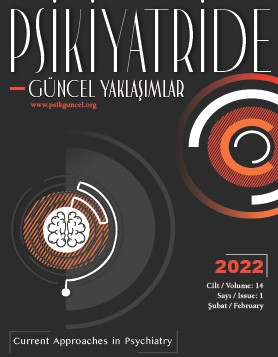Duygudurum ve Anksiyete Bozukluklarında Psikonöroimmünolojik Süreçler ve Psikoterapi ile İlişkisi
Psychoneuroimmunological Processes in Mood and Anxiety Disorders and Their Relation with Psychotherapy
Author(s): Ceyhun Yılmaz, Gözde İkizerSubject(s): Neuropsychology, Psychology of Self, Behaviorism, Health and medicine and law
Published by: Çukurova Universitesi Tip Fakultesi Psikiyatri Anabilim Dalı
Keywords: Anxiety disorders; mood disorders; cytokines; inflammation; psychotherapy;
Summary/Abstract: Given high prevalence of mood and anxiety disorders and associated dysfunctions, better understanding, preventing, and treating these disorders are crucial. Along with psychological and other biological causal factors and mechanisms, inflammatory biomarkers, especially cytokines, have also been implicated in etiology and maintenance of mood and anxiety disorders. In the literature, it is generally acknowledged that there is a generalized inflammatory state in these disorders. Thus, several studies have focused on the impact of psychotherapy interventions on neuroimmunological parameters including cytokine levels. This review aims to discuss psychoneuroimmunological factors, especially changes in cytokine levels associated with mood and anxiety disorders and psychotherapy approaches which are commonly used for their treatment. Especially levels of pro-inflammatory cytokines have been shown in majority of those studies to be decreased while levels of anti-inflammatory cytokines have been reported to be elevated in individuals having psychotherapy for these disorders. Nevertheless, variability in study designs and cross-sectional designs in most studies create challenges for comparing results between studies and understanding cause-effect relationships between psychiatric symptomatology and immunological parameters. It is important to carefully determine sample groups and measurement methods in future studies in the field of psychoneuroimmunology. In addition, more studies are needed to figure out if findings showing that certain psychotherapeutic approaches can have anti-inflammatory effects are specific to those approaches or not.
Journal: Psikiyatride Güncel Yaklaşımlar
- Issue Year: 14/2022
- Issue No: 1
- Page Range: 86-97
- Page Count: 12
- Language: Turkish

